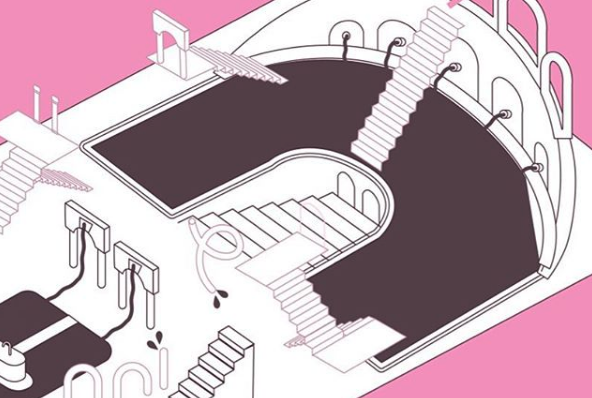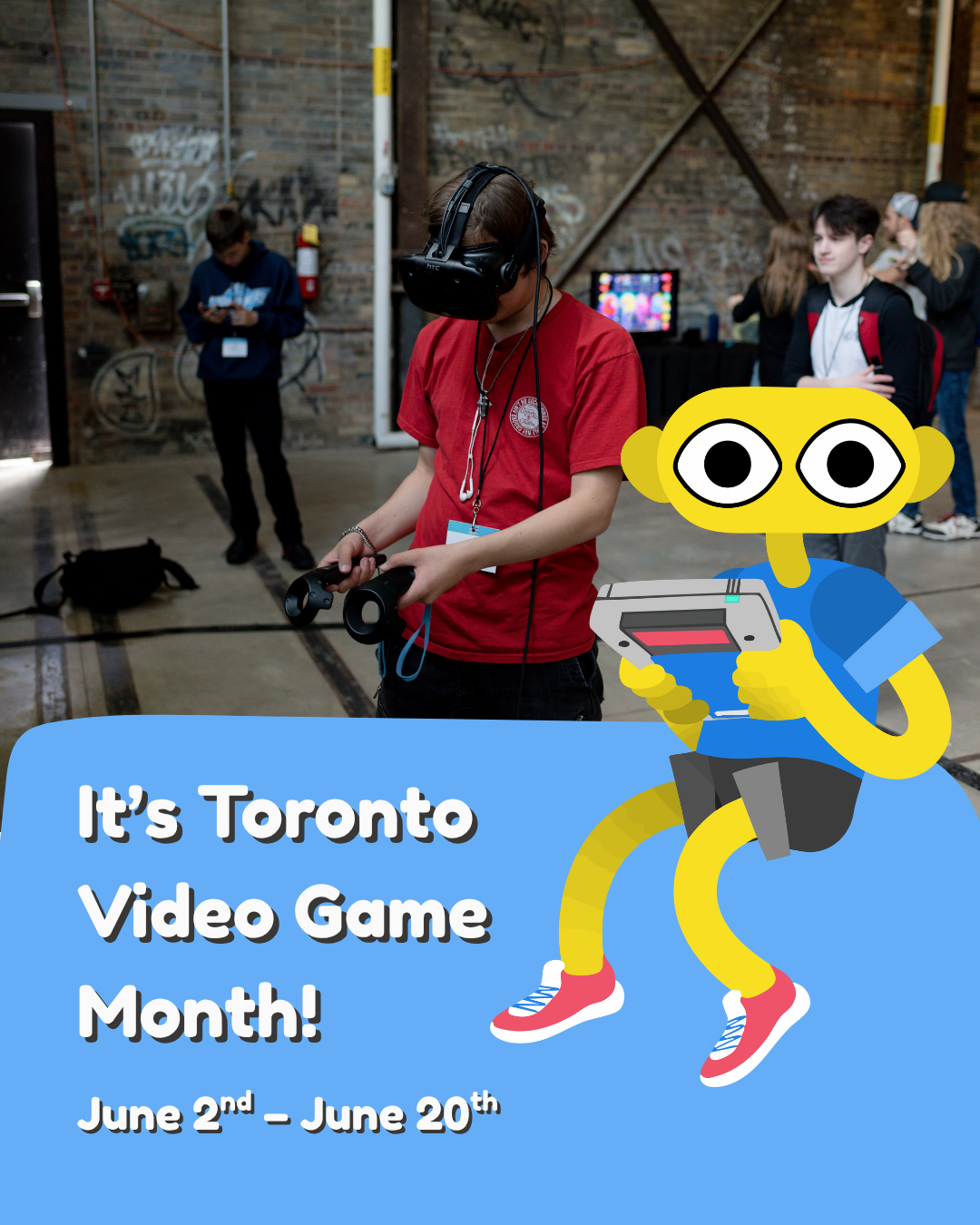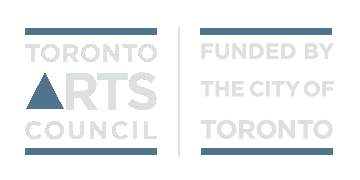
Experimental Game Design Workshops 2018
Almost any artistic medium you can think of can, in some fashion, be folded into games: Cinema, animation, literature, music, sculpture, architecture, you name it; not to mention other fields of study like economics, political theory, philosophy or urban planning! But the secret ingredient that makes games so special — the interactivity, the game design itself — can remain elusive, especially when it comes to teaching it in non-mainstream ways. In most game-making tutorials, participants simply recreate familiar systems (Learn Unity by cloning Angry Birds! Mod this first-person shooter!) or a focus on specific technical aspects of game-making, such as 3D modelling or audio engineering.
With that in mind, the Hand Eye Society is proud to present a series of workshops that encourages participants to create games in a new light. Coordinated by game-makers known for their thoughtful and innovative approaches to playful media, these workshops attempt to educate from more experimental, alternative perspectives. Participants will be able to take home useful technical skills, while being encouraged to explore unique game mechanics and meaningful themes in their own practice.
Pricing and Details
These prices are for each individual workshop and apply only to the ones in this series, unless otherwise stated.
- $25+HST for HES members (Monthly, Annual, Student, Studio, Volunteer)
- $40+HST for non-members
- FREE for on-site session volunteers and mentors
[button size=’medium’ style=” text=’Not a HES Member? Sign up here!’ icon=” icon_color=” link=’http://handeyesociety.com/join-the-society/#paidmember’ target=’_self’ color=” hover_color=” border_color=” hover_border_color=” background_color=” hover_background_color=” font_style=” font_weight=” text_align=’center’ margin=”]
All workshops will take place between March and June 2018. Each session will be 3 hours each, with a participant number of around 10-12. Public announcements regarding calls for volunteers, ticket sales, venue and registration will take place via e-mail newsletter, Facebook, Twitter, and this page on the HES website. Members will get an early heads-up along with discount codes, which will be e-mailed prior to tickets going on sale.
If you are in financial need or have accessibility requirements, please contact info@handeyesociety.com and we will try our best to make alternate arrangements.
How much experience/tech will I need to bring?
Most of these workshops have been designed with the experienced beginner or intermediate game-maker in mind. Here are some of the things you may be required to know or to bring in order to get the most out of the session, depending on the workshop:
- Familiarity with basic coding concepts and terminology, like variables, Boolean logic (true/false), etc.
- Prior game design experience and/or knowledge of concepts like mechanics, game feel, prototyping
- Experience with image-editing programs like Photoshop or GIMP
- Unity and C# experience (many of the workshops will use Unity)
- A laptop you can bring with you to the workshop.
We will try to run some beginner/101 workshops throughout the year to try and get more folks up to speed; however, a little knowledge goes a long way. Any game jam experience really helps (TOJam, Global Game Jam, Ludum Dare, Dames Making Game’s Feb Fatale, Itch.io jams), and Unity is a free program with plenty of video tutorials and documentation if you want to play with it before signing up. Stay tuned!
The Workshops
As each workshop goes on sale, full details will be revealed including ticket prices, software/hardware requirements, skills and takeaways, session overview and more. In the meantime, here’s a small preview of some of the workshops and what the coordinators have in store:
Gimmick with a Platformer
Asphyx, Corrypt, La-Mulana: These games adhere to simple, known forms, but explore concepts beyond their genre. This workshop is about expressing experimental mechanics through the lens of a familiar and accessible gameplay format: The humble 2D Platformer. Working from a basic Unity project, participants will come away with techniques for designing an experimental “gimmick” and integrating it into a gameplay genre of their preference.
Coordinator: Alexander Martin / @droqen
I think about games too much. I also make them. I never want to stop growing alongside the games I make. (Alex’s own “gimmick platformers” include Asphyx, Fishbane, Starseed Pilgrim, and Inconsiderate Climbers among many others.)
Gardening for the 4th Dimension
In the 4th dimension, anything can happen. What kind of plants would you grow? Luscious roses or vicious venus flytraps? In this workshop we will learn how to animate short loops and place them in Unity3D! The instructor will provide a project for Unity3D pre-loaded with a few scripts and example scenes. Participants will make their own assets, and we will work through the process of composing a landscape together. Create the garden of your dreams/nightmares!
Coordinator: Paloma Dawkins / @Palomadawkins
Paloma Dawkins is a cartoonist turned virtual reality and video game artist based in Montréal. An alumni of the HES Artsy Games Incubator: Animation Edition (2014), Paloma has been creating wild and loopy art games ever since! Her work includes Gardenarium (GDC Mild Rumpus), Alea (Comics x Games), and Palmystery (A MAZE Johannesburg), all of which can be played here.
Establishing Scene: Crafting the Beginning of a Game
This workshop will show participants how to define the expectations of a player in the very first parts of a game. Not just for establishing setting or mood, but for purposefully crafting the mind of the player around what your game might be. A carefully crafted image for conducting powerful experiences.
Coordinator: Taylor Bai-Woo / @fromsmiling
Taylor Bai-Woo is a game maker (artist, programmer, designer) from Toronto, Canada that co-owns a studio called Gloam Collective (working on a game called Bravery Network)! Outside of her studio (sometimes inside) she tends to make weird explorative games, usually ones that set an expectation and then break it in the best ways possible. She cares a lot about characters, atmosphere, and building a world that doesn’t necessarily make sense, but gives a feeling.
Autobiographical Roguelikes
A workshop in how to write procedural games in javascript using the Phaser.js game engine, and how to work in a narrative more meaningful than the usual “grab item and go.” We’ll provide a working, current boilerplate to get Phaser packed with Webpack and transpiling using Babel. We’ll go through how to maintain a game state using Redux, developed to maintain Facebook’s game state. On the creative side, we’ll be learning how to think through making a game a little stranger by starting with something familiar and changing it to something more personal.
Coordinator: Alex Leitch / @aeleitch
Alex Leitch is an award-winning kinetic sculptor and digital artist who lives and works in Toronto, Canada. Their most recent work includes the Nebula Space Derby, a game about racing whales with your brain developed for a LARP bar night in Toronto, and Hothouse, a Toronto Arts Council-sponsored installation of large-scale robot flowers for Come Up To My Room 2017 at the Gladstone Hotel. Alex teaches Game Design 1 at OCADu. They love video games that make life’s little indignities into unsettling interactions.
Forget Virtual Reality, Try Actual Reality
Video game designers tend to fixate largely on creating experiences to be shown on a digital display. This workshop is aimed to get designers also thinking about the social and physical aspects of the games they create. There’ll be discussion about real life rules fuzziness and playing to the strengths of your chosen medium. Then participants will be encouraged to test their physical game rapid prototyping skills.
Coordinator: Damian Sommer /@damiansommer
1/4 of the Gloam Collective, currently working on Bravery Network. In a previous life he made the IGF-nominated storytelling game The Yawhg, as well as the randomly generated Chess-like, Chesh.
Systems and Simulations: Breathe life into your game!
Use simple AI to breath life into your game world! Learn how to create needs that cause your virtual characters to interact with the world in ways that are unpredictable and emergent. Using a basic artificial intelligence framework for Unity3D called NeedSim Life Simulator, participants in this workshop will add needs-based behaviours to their games in order to create dynamic, emergent interactions between AI characters, the game world, and the player.
Coordinator: Jonathan Carroll / @toughguymountain
Jonathan Carroll does interaction and game design for Tough Guy Mountain, and teaches through OCADU, Trinity Square Video, Toronto Animated Images Society, Hand Eye Society, and at Tough Guy Mountain’s studio, the Brandscape.
Emergent Contraptions
Coordinator: Douglas Gregory / @D_M_Gregory
Douglas Gregory is a game designer at Ubisoft Toronto, teacher at Sheridan College, avid game jammer, and regular on GameDev.StackExchange.
Twining While Black
Coordinators: Liesl A. and Whitney French / @WhitneyFrench1
altopunk/alto89, also known as Liesl A. to human folk, is an artist, game developer, zinester, wannabe witch and all around super weird kid. Her claims to fame include a visual novel about an android lady’s brain (Homo Synthetica) and a tiny make-up game parody about a bored queer babe turned cyber god (Femmepocalypse). Along with Jenn Woodall, she co-created the TCAF-themed 2-player game “Battle Zine Turbo V” for the Comics x Games Jam 2017.
Whitney French is a writer, storyteller and multi-disciplinary artist. She’s been published in a couple of places but she takes more pride in the community she builds than the things she produces. She’s an Aries, a middle child, a nerd and a tree climber. Whitney also the founder and co-editor of the nation-wide publication From the Root Zine as well as the founder of the workshop series Writing While Black: an initiative to develop a community of black writers. Whitney French is presently working on an anthology of creative nonfiction by black Canadians for the University of Regina Press.
More to be announced! Send questions and comments to info@handeyesociety.com. This program is made possible by the generous support of the Ontario Arts Council.





















